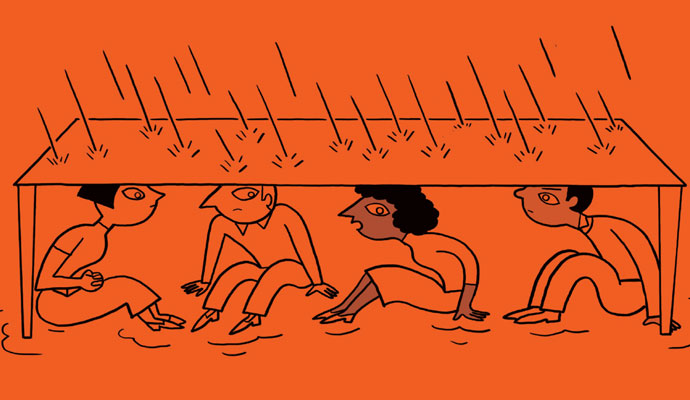Get More by Getting Mad
Anger can be a useful bargaining tool during negotiations.
Title:
Gaming Emotions in Social Interactions
(Subscription or fee required.)
Authors:
Eduardo B. Andrade (University of California at Berkeley) and Teck-Hua Ho (University of California at Berkeley)
Publisher:
Journal of Consumer Research, vol. 36, no. 4
Date Published:
December 2009
If you want to succeed in negotiations, a little anger (real or affected) can go a long way. This study found that used strategically, an inflamed disposition can convince opponents to give you what you want or at least pay closer attention to your demands. And the tactic is usually successful, although it can backfire if pressed too aggressively or considered insincere.
To examine the value of anger in a negotiation, the researchers conducted several tests. In the first test, subjects were divided into two groups. Members of the first group, called “the proposers,” were paired with a counterpart in a second group, “the receivers.” The proposers were given US$10 and instructed to share either $7 or $3 with their partner. The receivers, who were forced to accept whatever amount was offered, didn’t know that the proposers had only two possible options. Not surprisingly, the majority of the receivers were offered $3, after which they were asked to fill out a questionnaire asking how angry they were about the size of the handout. Minutes later a second test was conducted with the same pairs; the proposers were again given $10, but this time they could decide the amount that they would share. However, the receivers could reject the offer, which would result in both parties receiving no money. Immediately prior to the second test, researchers again asked the receivers to report via a new survey how angry they were about the outcome of the first test; half were informed that their survey results would be seen by their counterparts before the test began. Subjects who knew that their anger would be communicated to their partner were significantly more angry than those whose surveys would not be shared. Actual or feigned, that level of emotion did the job: proposers who believed their counterpart was angry shared more money than those who didn’t. (The authors did not specify how much more money was shared, only that the amount increased.)
From this, the researchers argue that demonstrations of anger can be influential in negotiations. In some cases, especially high-stakes situations, amplified displays of anger can frighten the proposer into suspecting that the negotiation could fail, leading to a more generous offer. But the authors caution that anger is not always the best tactic to adopt. In one of the tests, the proposers were made aware that receivers could be inflating their level of anger to get a better deal, which led the proposers to keep more money for themselves.
Bottom Line:
Appearing angry can be a useful tool in negotiations because it implies that the deal could fall through, which often leads the other party to rethink the terms of the offer.



